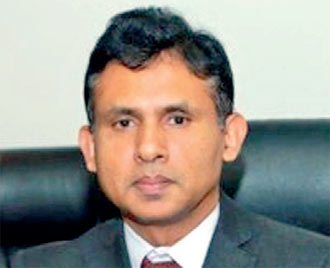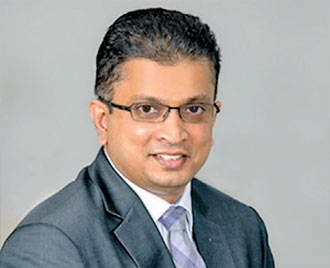SLT sale suffers ‘signal drop’ with Mobitel going to courts against Dialog-Airtel merger
Tuesday, 21 November 2023 00:59 – – 1858
- Mobitel says with 64% combined market share of amalgamated Dialog-Airtel entity is monopolistic and seriously jeopardise its viability
- Stresses TRCSL is duty bound to prevent monopolies and uphold interests of consumers
- Challenges in Court of Appeal possible combination of spectrum allocated 52% of total to Dialog and Airtel
- Alleges move is unlawful, utterly injurious and constitute a violation of conditions in spectrum licences
- Says law demands if merging and Airtel ceases to operate, should surrender spectrum allocation to TRCSL and such surrendered spectrum be reallocated amongst all existing operators according to law
- Opines profit motive of the monopolist would be to initially reduce price to drive out competitors and thereafter increase price after capturing the market
- Insists telecommunication is an essential public service and is of fundamental importance that multiple competing operators exist so that acceptable service levels and pricing will be available to public
 |
| Mobitel COO Sudarshana Geeganage |
 |
| Dialog Axiata Plc CEO Supun Weerasinghe |
 |
| Airtel Sri Lanka CEO Ashish Chandra
|
The sale of SLT Mobitel’s majority stake of 50.23% stake has hit a roadblock in view of the State controlled firm’s mobile brand taking the Telecommunications Regulatory Commission (TRC) to Court opposing the proposed merger of Dialog and Airtel citing the latter is monopolistic and would seriously jeopardise its viability.
Early this month, the Finance Ministry issued Request for Qualification (RfQ) from interested parties to acquire a 50.23% stake in Sri Lanka Telecom (SLT). The invitation to pre-qualify and bid for SLT is now on. Analysts said the on-going litigation which highlights possible loss of mobile telecom business of State-controlled entity, would impact the valuation of SLT.
This notice in November however came despite Mobitel in late June challenging the proposed merger between Dialog and Airtel in Sri Lanka and possible combination of spectrum estimated at 52% of allocated spectrum as illegal; wrongful; and unlawful among other factors.
Following Mobitel’s petition and respondents filing their answers, the matter is now subject to discussion among relevant parties to reach an agreement for equal distribution of spectrum enjoyed by Airtel. If no agreement, the matter will be taken up in the Court of Appeal next month.
In May, Dialog Axiata PLC announced that it has entered into a binding term sheet to combine operations of Airtel and the discussions were ongoing. The proposed transaction is subject to signing of definitive agreements and necessary closing conditions including applicable regulatory and shareholder approvals.
In the Court of Appeal case, Mobitel Ltd., and its Chief Operating Officer Sudarshana Geeganage are the petitioners and the respondents are 1) TRCSL, 2) Dialog Axiata, 3) Dialog Broadband Networks Ltd., 4) Bharti Airtel Lanka Ltd., and 5) Sri Lanka Telecom PLC.
The petitioner stated that Dialog accounts for market share of 55% whilst Airtel’s share is 9% suggesting the combined business accounts for 64% of the market. Mobitel’s market share is 24%. The other mobile operator is Hutch.
The petitioners stated that all spectrum licences issued by TRCSL are non-transferable and the spectrum allocated can only be used by the operator to whom it is given.
The petitioners state that the TRCSL has allocated spectrum so far in a variety of ways, including administrative allocation and through bidding. The 2nd respondent (Dialog) has always insisted on spectrum allocation through bidding. However, the petitioner states that such a method of allocation would only benefit the 2nd respondent and result in a monopolistic situation. The petitioners stated that the last major spectrum allocation pursuant to SC FR 142/2019 and the settlement entered therein was on the basis of an administrative allocation.
Mobitel believes that there will imminently be permission for a combination of the spectrum presently allocated to the 2nd (Dialog) and/or 4th respondents (Airtel). Mobitel also believes that one entity and/or an entity controlled by the same persons would imminently be permitted to use the spectrum presently allocated to the 2nd and/or 4th respondents.
The petitioners state that such a combining of spectrum allocation through the proposed combining of operations would be wholly unlawful, utterly injurious to the petitioners, and constitute a violation of conditions in the spectrum licences.
The petitioners state that in the event the and/or 4th respondents combine operations and one and/or more of the said licences cease to operate under the licences, the law demands that the operator or operators which thereby ceases to function and operate, and should surrender its spectrum allocation to the 1st respondent. Such surrendered spectrum may then be reallocated amongst all existing operators according to law.
In the event the and/or respondents envisage the establishment of a new entity to carry out combined operations, the 1st respondent has no right in law to issue relevant operator and/or spectrum licences to the new entity and the new entity would have no right in law to be allocated the spectrum allocated to existing entities.
The petitioners state that operators have no right in law to sell and/or transfer their respective allocations, and that the envisaged combining of operations is a ruse to circumvent the said prohibition. However, the petitioners apprehend that the 1st respondent would permit the 2nd and 4th respondents to combine their spectrum allocations without compelling the surrender of spectrum by the party or parties which cease to operate.
The petitioners state that therefore, a combining of spectrum allocations between the 2nd and 4th respondents would result in a monopolistic situation, which the 1st respondent is duty bound to prevent. Apart from combination of market share, combining of spectrum allocation will further enhance the capacity of the combined operator to obtain further market share and further strengthen the monopoly.
Mobitel also said that the establishment of a monopolistic situation and/or creating one operator with monopolistic power and/or the union of operators in a cartel-like union with monopolistic power would be contrary to law, and the spirit and policy of the law.
Further, the same would be against the interests of consumers in that monopolies would tend to engage in price gouging to the detriment of the industry and consumers. In other words, the profit motive of the monopolist would be to initially reduce the price to drive out competitors and thereafter increase the price after capturing the market.
The petitioners state that telecommunication services are an essential public service in which it is of fundamental importance that multiple competing operators operate so that acceptable service levels and pricing will be available to the public.
Petitioners gravely apprehend that the 1st respondent would imminently permit the and respondent to combine spectrum allocations without surrendering the spectrum allocation of the party/parties ceasing operations and reallocating the said allocation among the existing operators according to law. In fact, the petitioners are unaware if such permission has already been granted and/or requests for permission are being processed.
The petitioners recalled that on a previous occasion, when Hutchinson merged with Etisalat, the petitioner objected to the combination of spectrum allocations. Thereafter, the TRCSL permitted a combination of spectrum allocation but required a partial surrender of spectrum allocations and assigned the said allocation to the 4th respondent.
The petitioners state that the 1st petitioner has expressed an interest in acquiring the spectrum assets of Lanka Bell in the 8S0 and 2300 MHz bands. However, the 1st respondent (TRCSL) has indicated that such an acquisition would not be possible.
The petitioners further state that the 1st respondent is proposing the introduction of Radio Access Network Sharing (RAN Sharing) which would permit operators to share spectrum allocation in terms of applicable conditions. However, the 1st respondent has intimated to the petitioners and 5th respondent that it would not permit the 1st petitioner which is a mobile operator and the spectrum allocation.
In the circumstances, the 1st petitioner would be in a hugely disadvantaged position given that it has no allocation in the 2600MHz band which is to be used for 4G technology and later for 5G technology which represents the future of data connectivity.
The petitioners state that in 2019, pursuant to an allocation made to the respondent by the 1st respondent, the 2nd and 3rd respondents filed SC FR Application 142/2019 against the said allocation. The matter was eventually settled by way of an agreement regarding an administrative allocation of spectrum by the 1st respondent after several parties including the 1st petitioner intervened.
Mobitel pleads that they apprehend that the action and/or imminent action of the respondent to permit the 2nd and 4th respondent to combine spectrum allocations and/or permit the combination of spectrum presently allocated to the 2nd and 4th respondents without surrendering the spectrum allocation of the party/parties ceasing operations and without reallocating the said allocation among the existing operators according to law would be: a. Ultra vires the powers of the 1st respondent Telecommunications Regulatory Commission of Sri Lanka, b. illegal; c. wrongful; d. unlawful; e. void ab initio and of no force or effect in law; f. arbitrary, unreasonable and capricious; g. in breach of the principles of proportionality and reasonableness; h. in breach of the principles of natural justice; i. in breach of the principle of legitimate expectations; j. without any basis.
Therefore, Mobitel is praying from Court of Appeal for a mandate in the nature of a writ of prohibition preventing the 1st respondents, its servants, agents, officers, employers or those holding under and/or through it from permitting the 2nd and 4th respondent to combine spectrum allocations and/or from permitting the combination of spectrum presently allocated to the 2nd and 4th respondent and from taking all incidental steps thereto inclusive of issuing relevant operator and/or spectrum licences.
It also praying for a mandate in the nature of a writ of certiorari quashing the decision, if any, of the 1st respondents, its servants, agents, officers, employers or those holding under and/or through it to permit the 2nd and 4th respondent to combine spectrum allocations and/or permit the combination of spectrum presently allocated to the and 4th respondent;
For a mandate in the nature of a writ of certiorari, in the event the 1st respondent has already permitted the 2nd and 4th respondent to combine spectrum allocations and/or has already permitted the combination of spectrum presently allocated to the 2nd and/or 4th respondent, quashing all such permissions and incidental steps of the 1st respondent thereto inclusive of the issuance of relevant operator licences to a new entity and/or the issuance of spectrum licences to a new entity and/or the transfer and/or issuance of spectrum licences to the and/or respondents pursuant to the aforesaid permission granted to combine spectrum allocations.
Mobitel is also praying for a mandate in the nature of a writ of mandamus directing the 1st respondent, in the event it has already permitted the 2nd and 4th respondent to combine spectrum allocations and/or permitted the combination of spectrum presently allocated to the and 4th respondents, to forthwith withdraw such permission/s and take all incidental steps thereto inclusive of cancelling/discontinuing relevant operator and/or spectrum licences; For an interim order pending final determination prohibiting the 1st respondents, its servants, agents, officers, employers or those holding under and/or through it from permitting the and 4th respondent to combine spectrum allocations and/or from permitting the combination of spectrum presently allocated to the 2nd and respondent and from taking all incidental steps thereto inclusive of cancelling/discontinuing relevant operator and/or spectrum licences; For an interim order pending final determination suspending the decision, if any, of the 1st respondents, its servants, agents, officers, employers or those holding under and/or through it to permit the 2nd and respondent to combine spectrum allocations and/or permit the combination of spectrum presently allocated to the 2nd and respondent; For an interim order pending final determination, in the event the 1st respondent has already permitted the 2nd and 4th respondent to combine spectrum allocations and/or has already permitted the combination of spectrum presently allocated to the 2nd and/or 4th respondent, suspending all such permissions and incidental steps of the 1st respondent thereto inclusive of the issuance of relevant operator licences to a new entity and/or the issuance of spectrum licences to a new entity and/or the transfer and/or issuance of spectrum licences to the 2nd and/or 4th respondents pursuant to the aforesaid permission granted to combine spectrum allocations.
Mobitel is also praying for an interim order pending final determination preventing the combined use of the spectrum presently allocated to the 2nd and 4th respondents.






